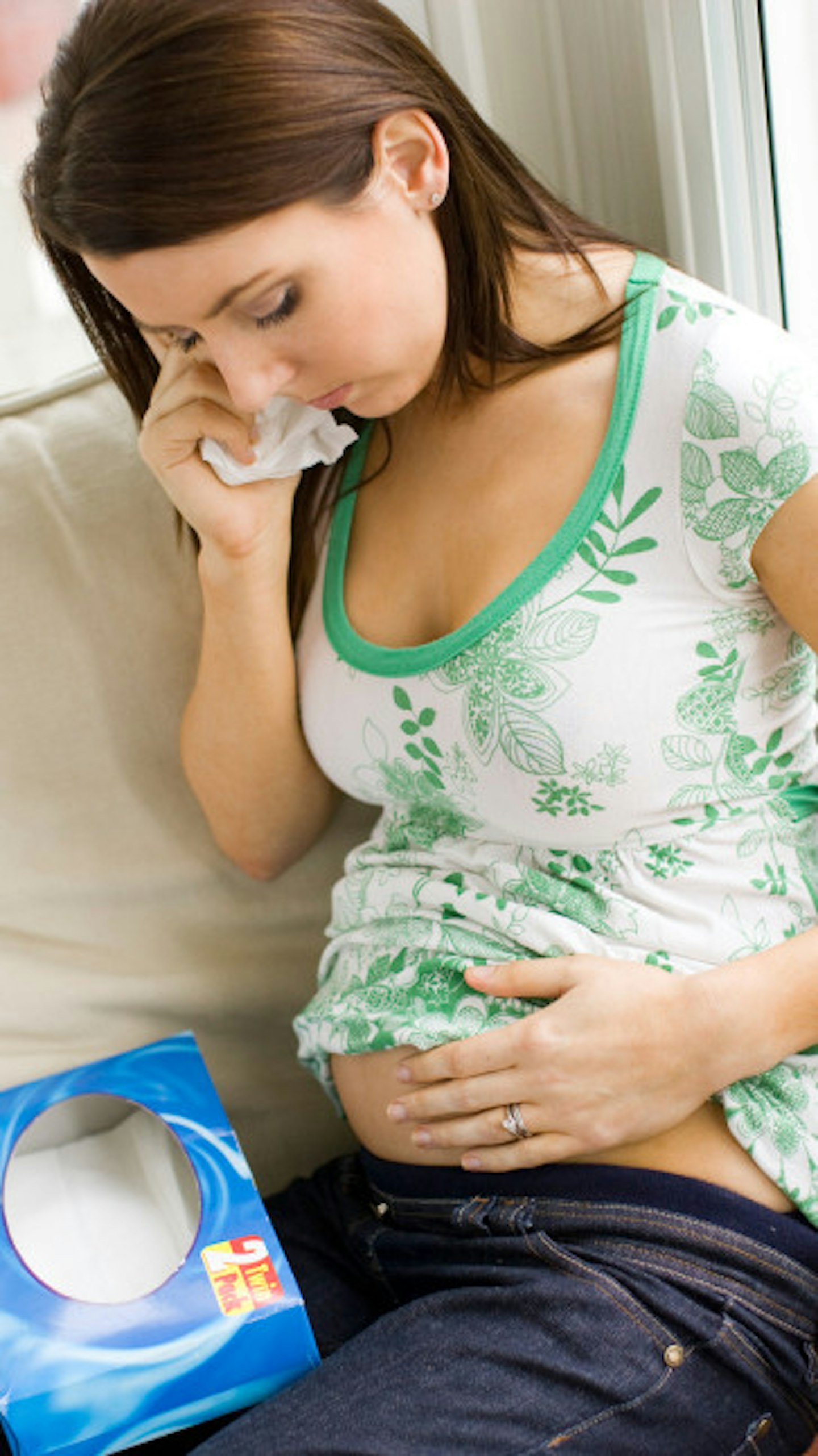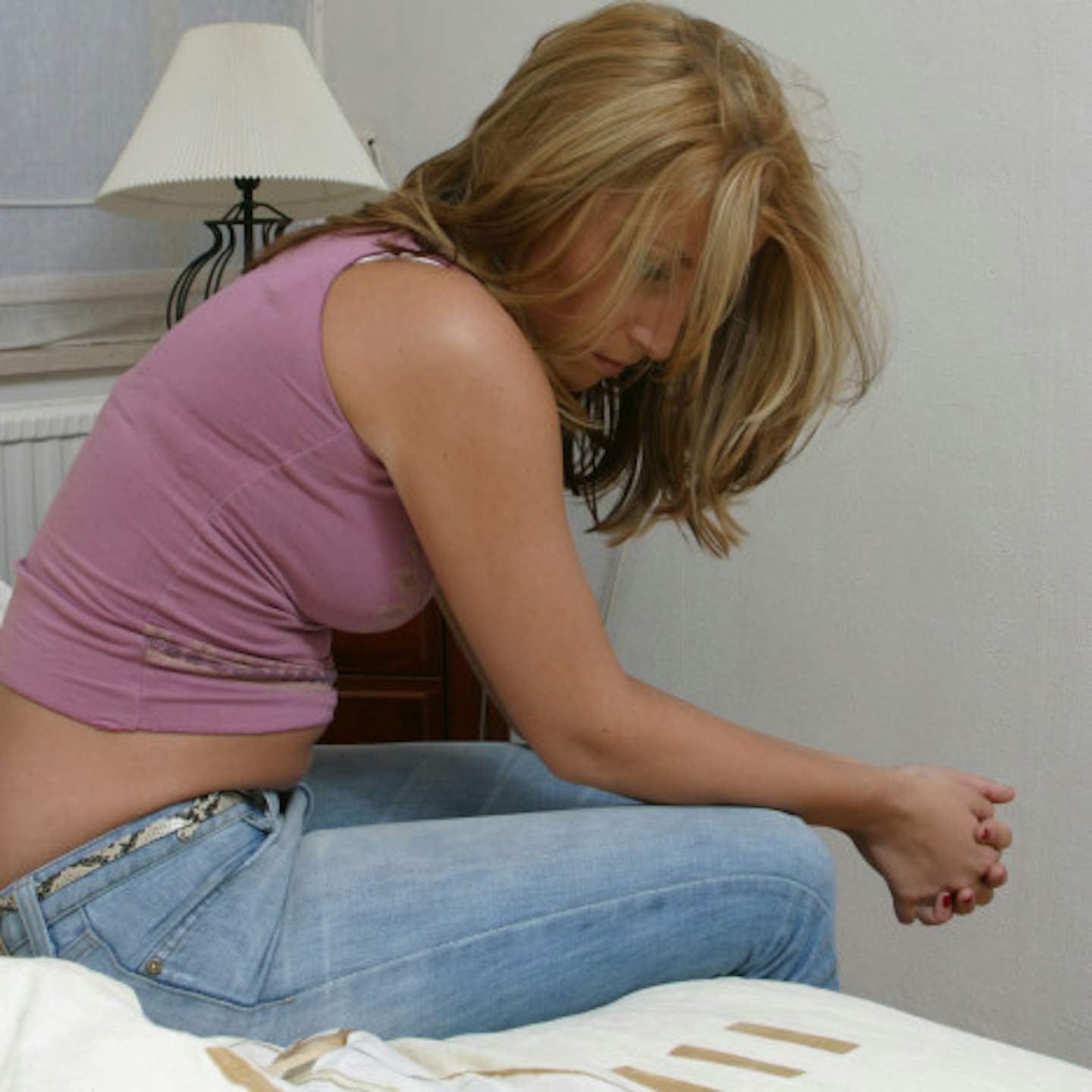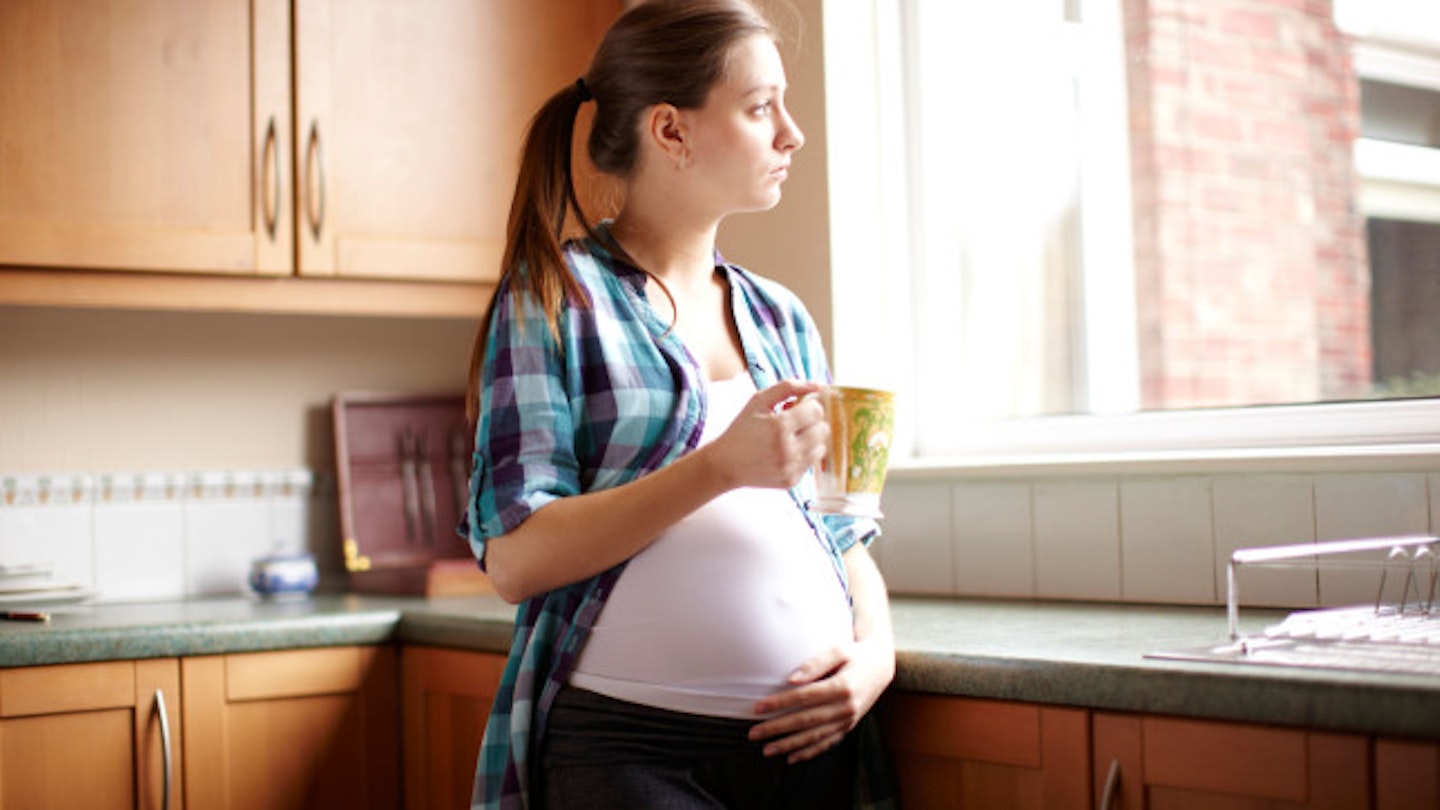Your hormones can wreak havoc with how you’re feeling during pregnancy, so it’s normal to feel sometimes up and sometimes down.
But, if you're feeling low more often than you're feeling happy, then you need to talk to someone.
It could be a sign of antenatal depression.
WHAT IS ANTENATAL DEPRESSION?
Antenatal depression is the name given to depression experienced during pregnancy.
IS IT AN ILLNESS?
Yes. Antenatal depression is a real illness with real symptoms, and it's not a sign of weakness or something you can 'snap out of' by 'pulling yourself together'.
HOW COMMON IS IT?
According to Tommy’s, depression during pregnancy is common; in fact, around one in every ten pregnant women experience it.
WHAT ARE THE CAUSES OF ANTENATAL DEPRESSION?
There is no one cause for antenatal depression; it affects women from all walks of life, at different ages and at different stages during their pregnancies.
There are, however, some things which can make antenatal depression more likely.
According to Tommy’s, these include:
-
An upsetting event (such as a bereavement or divorce)
-
You’ve had depression before
-
Not having friends or family around
-
Life events such as domestic abuse, money worries or unplanned pregnancy
-
Having a long-standing or life-threatening illness
-
Family history of depression
-
Personality traits, such as low self-esteem or being overly self-critical
It is thought that the majority of women suffering from antenatal depression are pregnant with their first child, although some women will experience it during their second or third pregnancies.
This can be as a result of a previous difficult birth, relationship difficulties or changes to financial circumstances.

WHAT ARE THE SYMPTOMS OF ANTENATAL DEPRESSION?
According to Tommy’s, typical signs of prenatal depression include:
-
Feeling generally down most of the time
-
Feeling as if you can’t be bothered with things
-
Being unable to concentrate or make decisions
-
Not being able to cope with life
-
Feeling tired / not having any energy
-
Not being able to get to sleep and then waking up early
-
Feeling tearful
-
Feeling irritable
-
Not wanting to be with other people
-
Feeling restless and agitated
-
Losing your self-confidence
-
Feeling worthless
-
Feeling guilty
-
Losing your appetite or having a much bigger appetite
-
Losing interest in sex
-
Thinking about suicide.
If you have depression, you won’t necessarily experience all of these symptoms.
Tommy’s advise: “Remember that some of these things can also be a normal part of pregnancy, such as feeling very tired or tearful or going off sex.
“If your feelings started gradually you may find it hard to tell where the line is between ‘normal’ difficult feelings and being depressed. Or it may be obvious because you suddenly start to feel very low.”
Trust your instincts; if you don’t feel right, or experience some of the above symptoms for more than a fortnight, talk to your GP or midwife.
WHAT PROBLEMS CAN ANTENATAL DEPRESSION CAUSE FOR ME AND MY BABY?
This video should provide you with all of the details on how antenatal depression can affect both you and your unborn child, should it go untreated.
WHAT SHOULD I DO IF I THINK I HAVE ANTENATAL DEPRESSION?
The first thing is to speak with your GP or midwife; antenatal depression often goes undiagnosed because of the pregnant woman's fears or beliefs that it's simply wrong to experience negative feelings during pregnancy.
They will be able to offer you advice on treatments available.
WILL I NEED MEDICATION FOR MY DEPRESSION?
It depends on how severe your depression is and what services are local to you. The doctor may recommend talking therapies or cognitive behavioural therapy (CBT). But you may be offered medication, particularly if you have suffered with depression before.
Don’t worry; your healthcare team will take into account stage of your pregnancy, so that they offer you the medication which poses the least risk to you and your baby.
Try not to feel guilty if you have to take medication to help you; you are not alone, and many other women will be going through the same thing.
CAN I DO ANYTHING ELSE TO HELP COMBAT FEELINGS OF DEPRESSION?
There aren’t any instant cures for depression. However the following techniques and tips (as advised by the Pandas Foundation) may help to overcome depressive thoughts, behaviours and feelings.
** Maintain a healthy diet**
-
Set yourself three regular meals each day, varying your foods to include wholegrain cereals, vegetables, fruit, beans, lentils and nuts.
-
Aim to get your five portions of fruit and veg each day.
-
Add protein to your diet (found in meat, fish, eggs, milk, cheese, lentils and beans)
-
Drink plenty of water; your mood can be affected by mild dehydration, so ensure you get your 1.2 litres of water a day.
-
Get plenty of vitamin D (found in milk, cheese, butter, fish, oysters, eggs and mushrooms) into your diet; it is a proven mood booster.
Exercise regularly
Exercising regularly is good for preparing your body for labour, but it is also a good way to boost your mental health. Try prenatal yoga, going for a brisk walk, or swimming for a low-impact exercise that’ll release feel-good endorphins.
Avoid alcohol and smoking
** Speak with your partner, family, or friends about how you are feeling**
** See a therapist, if possible**
** Try relaxation techniques**
Whether you opt for breathing exercises (find out more here), take a warm bath, spend some time meditating, or treat yourself to a massage, allowing yourself time to relax is a good way to take back control of your feelings.
** Write your feelings down**
Keeping a diary can be a great source of relief, and help you to release all of those uncomfortable feelings.
** Join a support group**
Sharing your feelings and experiences with other people who are going through the same thing can help you to feel less isolated, not to mention give you a chance to find out some tried-and-tested coping strategies.

CAN I USE HERBAL REMEDIES TO SELF-MEDICATE?
Do not try to treat yourself with herbal remedies. St John's Wort, which can be used to ease depression, is not safe for women to use during pregnancy.
WHAT WILL HAPPEN AFTER MY BABY IS BORN?
It's thought there is a link between depression in pregnancy and postnatal depression. But this doesn't mean that if you are depressed in pregnancy you will automatically be depressed after your baby is born.
WHERE CAN I FIND MORE INFORMATION AND SUPPORT?
Tommy’s: Phone 0207 398 3400. Charity which provides online information from midwives and mothers, as well as advice on how to recognise and deal with antenatal depression.
PANDAS : Helpline 0843 2898401. Provides telephone support, online information and local support groups for pregnancy depression and postnatal depression.
MIND: Helpline 0300 123 3393. Mental health charity providing information, support, local groups and an online chatroom
